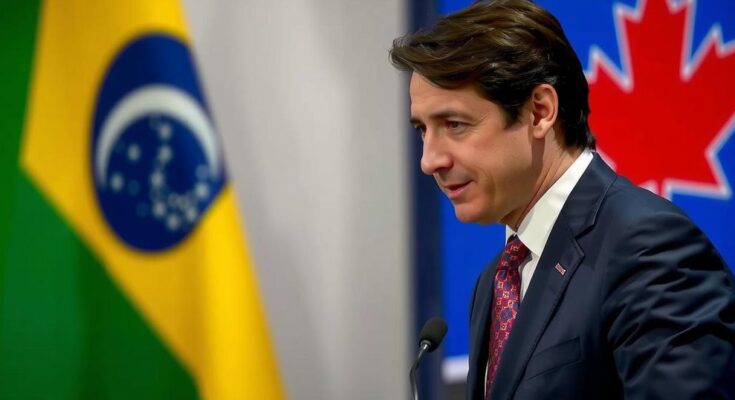Prime Minister Trudeau has arrived in Lima, Peru for the APEC summit and will subsequently attend the G20 summit in Brazil. The meetings are crucial for improving multilateral institutions amid anticipated trade policy changes under President-elect Trump. Topics will include trade relations, global conflicts, and technological advancements.
Prime Minister Justin Trudeau has landed in Lima, Peru, where he will participate in the Asia-Pacific Economic Cooperation (APEC) summit, before traveling to Rio de Janeiro, Brazil, for the G20 meeting. These summits focus on enhancing multilateral institutions amid concerns regarding the trade policies of the incoming U.S. administration under President-elect Donald Trump. In Peru, Trudeau will engage in discussions aimed at reducing trade barriers and strengthening regional connections across the Pacific Rim. Following his time in Peru, Trudeau will proceed to Brazil for the G20 summit, where leaders will convene to address a range of global issues, including the ongoing conflict in Ukraine, advancements in artificial intelligence, and efforts to eradicate hunger. Both summits will feature formal interactions with fellow heads of government alongside informal discussions critical to maintaining robust international relationships.
The APEC summit serves as a platform for discussion among Asia-Pacific nations, focused on promoting free trade and economic cooperation, which is pivotal to counterbalance emerging challenges in global trade networks especially given anticipated policy shifts in the U.S. under Trump. The G20 summit, on the other hand, gathers the world’s major economies to deliberate on pressing international matters, making it essential for Canada to align with both regional and global partners during this transitional period.
In summary, Prime Minister Trudeau’s attendance at the APEC and G20 summits highlights Canada’s commitment to fostering strong international relationships as trade dynamics shift with the new U.S. administration. As global discussions on various critical issues unfold, it becomes increasingly important for Canada to navigate these challenges effectively, ensuring continued collaboration and support amidst a backdrop of potential tariffs and altered trade flows.
Original Source: www.thealbertan.com




